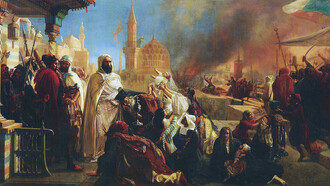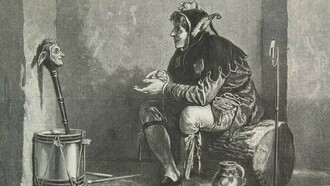I believe that eight million Americans are entitled to a capital letter.
(W.E.B.DuBois)
Social equality is the demon that cannot be tolerated within the tenets of white supremacy. Even capitalizing the “N” in Negro was a violation of this premise in the world of white supremacy. A capital N would give a respect that could equate with some type of social recognition, while the small “n” was a symbol of the low “place” that the group held in the racial hierarchy of American white society.
In 1962, was off to college “up North,” as we called the Midwest. While the Jim Crow laws and customs prevalent in the South had not disempowered the spirit of this colored girl, it would be refreshing to leave behind the “Colored and White” designations and southern society itself. I was looking forward to being allowed to evolve into a “Negro.”
A rude awakening occurred, however, during my travels to college, which made me aware of W.E.B. DuBois’s concern about the small (n) or capital (N) in my racial designation. My mother, aunt, and I had to sleep in the car in Terra Haute, Indiana, as no motel would accommodate us. I intimately understood that while I was officially a Negro in the North, in many circumstances, I would still be treated as a “negro.”
My new home as a Negro was Western Michigan University in Kalamazoo, Michigan. I was assigned a Negro roommate, as was the custom; we were told we would be more comfortable with our own. I had good friends and relationships my entire stay in the dorm, but my social life was usually confined to other Negroes.
Negrohood was evident in most aspects of life at Western. We organized our own dances and other social activities. In the Student Union, Negro students had their own special area, called “tac corner,” where we gathered.
The Greek system was prominent at Western for both white and Negro students. I pledged Delta Sigma Theta sorority, wherein most of my social life took place. It was through my Negro sorority that my earlier lessons at home in the South as a colored girl were reinforced. Delta Sigma Theta was a service sorority; the value of “giving back,” something I already knew, was central. As a pledge, I had a leadership role in planning a career fair for Negro students in Kalamazoo.
The small “n” was present in our relationships at Western subtly and most of the time, but often enough it was quite overt. On one occasion, our big sisters demanded that we eight pledges spend the night together. Because both my roommate and I were pledging, we decided that the other six should slip into our room for the evening. Of course, we were discovered and reprimanded, with the house limit per person per room being two. The housemother implied that our prank was a demonstration of our moral inferiority; we were accused of stealing $6 from the dormitory, as the cost was $1 per guest. The real issue was not the $6, which the pledges could have paid, but that the dormitory policy said that only one guest was allowed overnight in a dorm room. As if sorority pranks were not carried on by white girls, ours was regarded as a demonstration of our “negroness.”
The belief in our “negroness” in cultural and intellectual inferiority was not confined to dorm mothers but was demonstrated by a professor. At a time when Negroes were considered unable to speak Standard English, three Negro students were enrolled in the Speech and Hearing program at Western. The professor of phonetics informed one of the Negro students that she would probably fail the phonetics class because Negroes did not hear sounds in the same way as whites did. However, because she had learned the same lessons in the North as I had learned as a colored girl in the South, she understood that she simply had to show him who she truly was. This Negro student, Anitta Rutherford Orr, not only passed the class but became a supervisor in the Speech and Hearing program in the Detroit Public Schools. Even more telling of who she was, Anitta Rutherford Orr became President of the Michigan Speech and Hearing Association. She was obviously not “tragically colored.”
As I evolved into my capital-Negro consciousness, I realized that the lessons I learned as a colored girl were coming to the fore as the most helpful and empowering characteristics to continue to cultivate as I grew up. My group and I would be perceived and treated as “negroes” rather than “Negroes,” but we would continue to show our stuff—who we had been reared to be: strong, resilient, never depending on others to define us.















